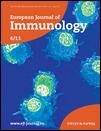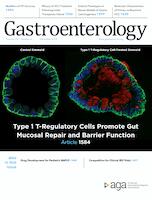Rooijen, Nico van
Person Preferred Name
Nico van Rooijen
Related Works
Content type
Digital Document
Abstract
Macrophages are critical players in the innate immune response to infectious challenge or injury, initiating the innate immune response and directing the acquired immune response. Macrophage dysfunction can lead to an inability to mount an appropriate immune response and as such, has been implicated in many disease processes, including inflammatory bowel diseases. Macrophages display polarized phenotypes that are broadly divided into two categories. Classically activated macrophages, activated by stimulation with IFNγ or LPS, play an essential role in response to bacterial challenge whereas alternatively activated macrophages, activated by IL-4 or IL-13, participate in debris scavenging and tissue remodeling and have been implicated in the resolution phase of inflammation. During an inflammatory response in vivo, macrophages are found amid a complex mixture of infiltrating immune cells and may participate by exacerbating or resolving inflammation. To define the role of macrophages in situ in a whole animal model, it is necessary to examine the effect of depleting macrophages from the complex environment. To ask questions about the role of macrophage phenotype in situ, phenotypically defined polarized macrophages can be derived ex vivo, from bone marrow aspirates and added back to mice, with or without prior depletion of macrophages. In the protocol presented here clodronate-containing liposomes, versus PBS injected controls, were used to deplete colonic macrophages during dextran sodium sulfate (DSS)-induced colitis in mice. In addition, polarized macrophages were derived ex vivo and transferred to mice by intravenous injection. A caveat to this approach is that clodronate-containing liposomes deplete all professional phagocytes, including both dendritic cells and macrophages so to ensure the effect observed by depletion is macrophage-specific, reconstitution of phenotype by adoptive transfer of macrophages is necessary. Systemic macrophage depletion in mice can also be achieved by backcrossing mice onto a CD11b-DTR background, which is an excellent complementary approach. The advantage of clodronate-containing liposome-mediated depletion is that it does not require the time and expense involved in backcrossing mice and it can be used in mice regardless of the background of the mice (C57BL/6, BALB/c, or mixed background).
Origin Information
Content type
Digital Document
Abstract
mφ are heterogeneous in their functions, and although it is clear that inflammatory mφ contribute to inflammation in IBDs, multiple lines of evidence suggest that M2a mφ may offer protection during intestinal inflammation. In vivo SHIP‐deficient mouse mφ are M2a so SHIP‐deficient mice provide a unique genetic model of M2a mφ. Based on this, this study tested the hypothesis that SHIP‐deficient, M2a mφ protect mice from intestinal inflammation. The objectives were to compare the susceptibility of SHIP+/+ and SHIP−/− littermates with DSS‐induced intestinal inflammation and to determine whether protection was mφ‐mediated and whether protection could be transferred to a susceptible host. We have found that SHIP−/− mice are protected during DSS‐induced intestinal inflammation. SHIP−/− mice have delayed rectal bleeding and reduced weight loss, disruption of intestinal architecture, and immune cell infiltration during DSS‐induced colitis relative to their WT littermates. Using liposome depletion of mφ, we found that SHIP−/− mouse protection was indeed mφ‐mediated. Finally, we determined that SHIP−/− mφ‐mediated protection could be conferred to susceptible WT mice by adoptive transfer of M2a mφ derived ex vivo. This study supports our hypothesis by demonstrating that SHIP‐deficient, M2a mφ are protective in this murine model of acute intestinal inflammation. Adoptive transfer of M2a mφ to patients with IBDs offers a promising, new strategy for treatment that may be particularly useful in patients who are otherwise refractory to conventional therapies.
Origin Information
Content type
Digital Document
Abstract
Alternatively activated or M2 macrophages have been reported to protect mice from intestinal inflammation, but the mechanism of protection has not been elucidated. In this study, we demonstrate that mice deficient in the p110δ catalytic subunit activity of class I phosphatidylinositol 3-kinase (PI3Kp110δ) have increased clinical disease activity and histological damage during dextran sodium sulfate (DSS) induced colitis. Increased disease severity in PI3Kp110δ-deficient mice is dependent on professional phagocytes and correlates with reduced numbers of arginase I+ M2 macrophages in the colon and increased production of inflammatory nitric oxide. We further demonstrate that PI3Kp110δ-deficient macrophages are defective in their ability to induce arginase I when skewed to an M2 phenotype with IL-4. Importantly, adoptive transfer of IL-4-treated macrophages derived from WT mice, but not those from PI3Kp110δ-deficient mice, protects mice during DSS-induced colitis. Moreover, M2 macrophages mediated protection is lost when mice are cotreated with inhibitors that block arginase activity or during adoptive transfer of arginase I deficient M2 macrophages. Taken together, our data demonstrate that arginase I activity is required for M2 macrophages mediated protection during DSS-induced colitis in PI3Kp110δ-deficient mice.
Origin Information
Content type
Digital Document
Abstract
Background & Aims
Crohn’s disease (CD) is associated with a dysregulated immune response to commensal micro-organisms in the intestine. Mice deficient in inositol polyphosphate 5′-phosphatase D (INPP5D, also known as SHIP) develop intestinal inflammation resembling that of patients with CD. SHIP is a negative regulator of PI3Kp110α activity. We investigated mechanisms of intestinal inflammation in Inpp5d−/− mice (SHIP-null mice), and SHIP levels and activity in intestinal tissues of subjects with CD.
<p>Methods
We collected intestines from SHIP-null mice, as well as Inpp5d+/+ mice (controls), and measured levels of cytokines of the interleukin 1 (IL1) family (IL1α, IL1β, IL1ra, and IL6) by enzyme-linked immunosorbent assay. Macrophages were isolated from lamina propria cells of mice, IL1β production was measured, and mechanisms of increased IL1β production were investigated. Macrophages were incubated with pan−phosphatidylinositol 3-kinase inhibitors or PI3Kp110α-specific inhibitors. Some mice were given an antagonist of the IL1 receptor; macrophages were depleted from ilea of mice using clodronate-containing liposomes. We obtained ileal biopsies from sites of inflammation and peripheral blood mononuclear cells (PBMCs) from treatment-naïve subjects with CD or without CD (controls), and measured SHIP levels and activity. PBMCs were incubated with lipopolysaccharide and adenosine triphosphate, and levels of IL1β production were measured.
<p>Results
Inflamed intestinal tissues and intestinal macrophages from SHIP-null mice produced higher levels of IL1B and IL18 than intestinal tissues from control mice. We found PI3Kp110α to be required for macrophage transcription of Il1b. Macrophage depletion or injection of an IL1 receptor antagonist reduced ileal inflammation in SHIP-null mice. Inflamed ileal tissues and PBMCs from patients with CD had lower levels of SHIP protein than controls (P < .0001 and P < .0002, respectively). There was an inverse correlation between levels of SHIP activity in PBMCs and induction of IL1β production by lipopolysaccharide and adenosine triphosphate (R2 = .88).
<p>Conclusions
Macrophages from SHIP-deficient mice have increased PI3Kp110α-mediated transcription of Il1b, which contributes to spontaneous ileal inflammation. SHIP levels and activity are lower in intestinal tissues and peripheral blood samples from patients with CD than controls. There is an inverse correlation between SHIP activity and induction of IL1β production by lipopolysaccharide and adenosine triphosphate in PBMCs. Strategies to reduce IL1B might be developed to treat patients with CD found to have low SHIP activity.
Origin Information




